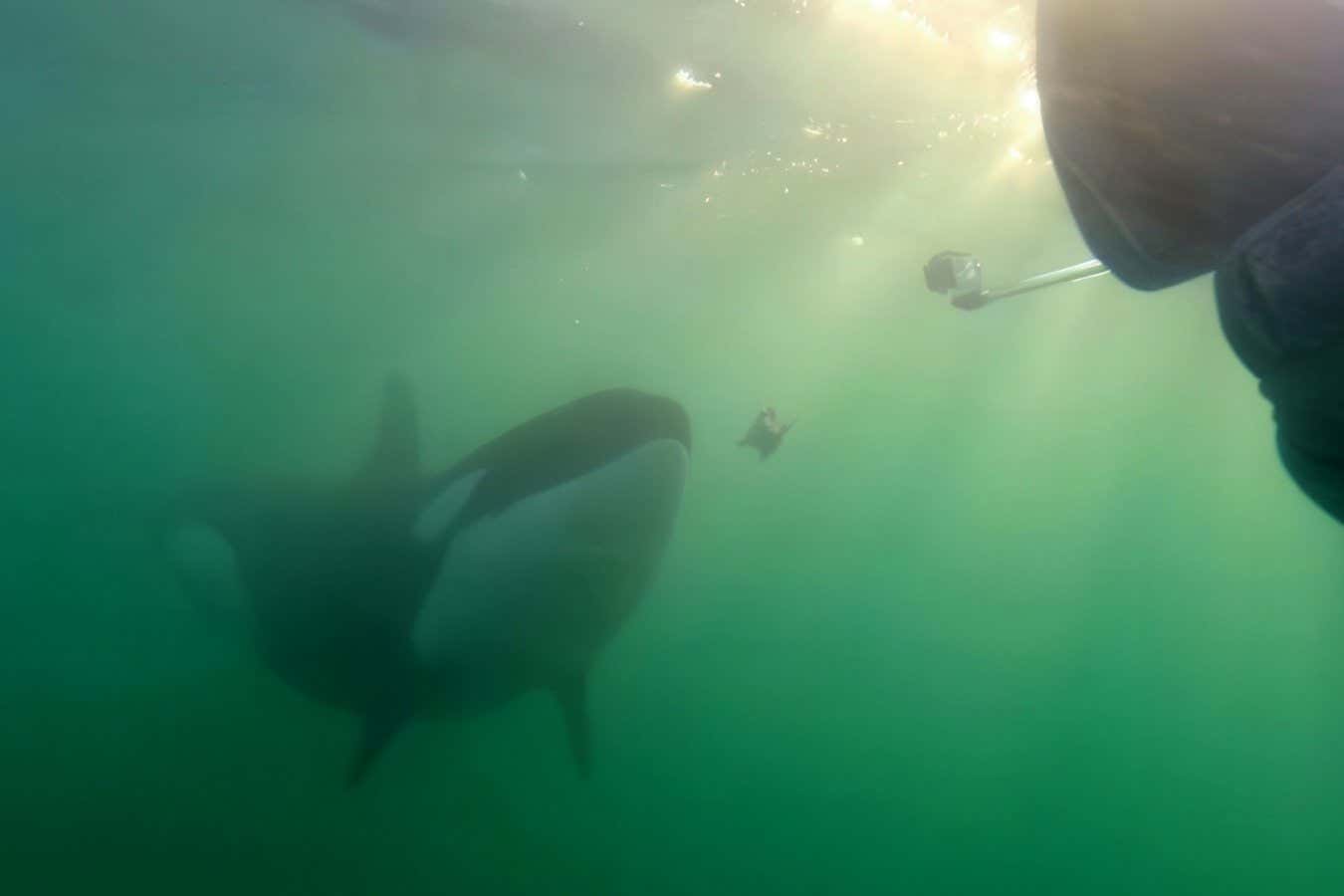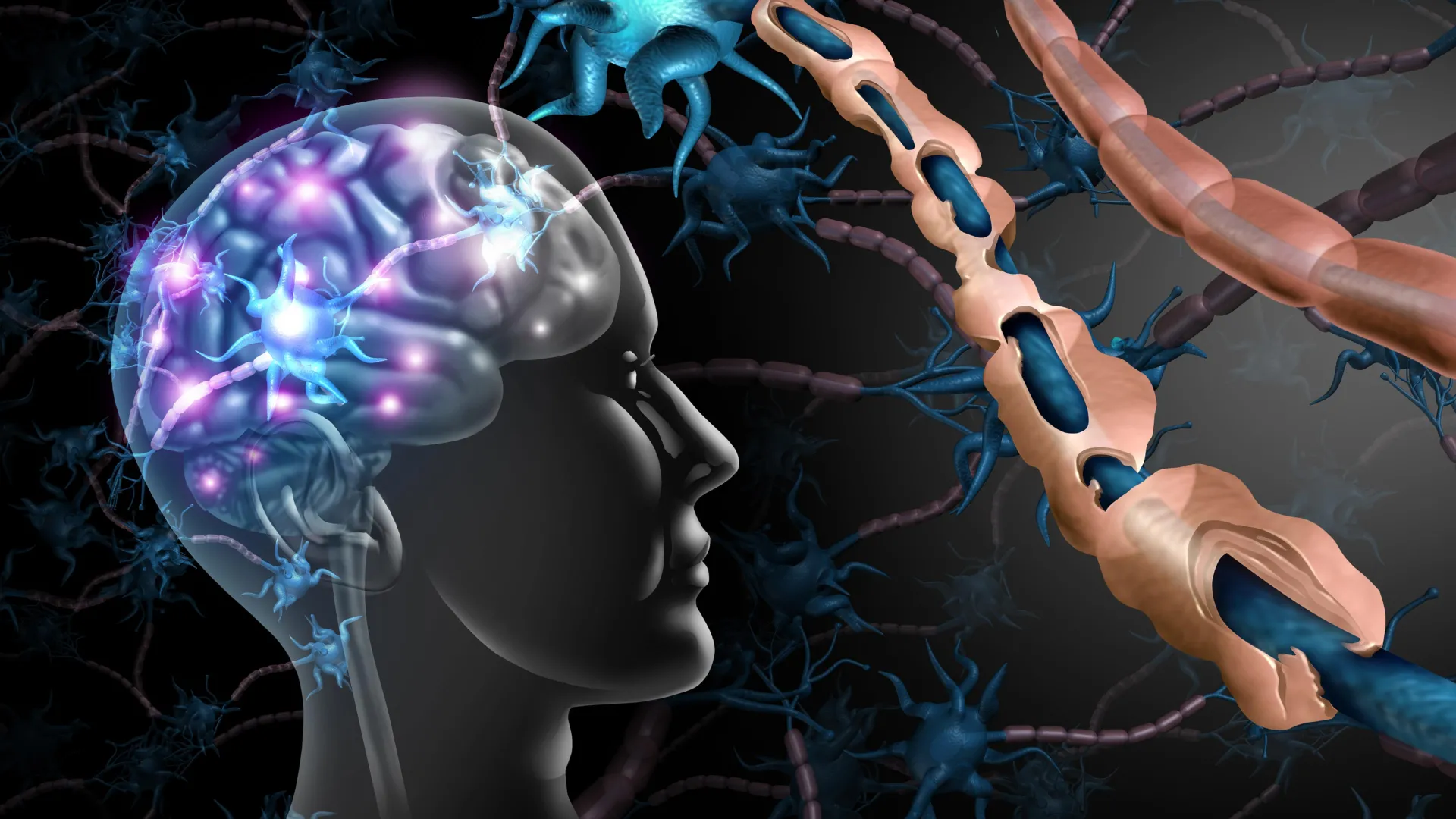
An orca attempting to share food with a researcher holding a camera
Orca Research Trust
Orcas have been seen appearing to gift dead prey to humans, which may be a sign that they engage in altruism and can recognise sentience in other species.
Jared Towers at marine research firm Bay Cetology was filming a pod of orcas (Orcinus orca) as they snacked on seabirds in Alert Bay, Canada, when he made the discovery. Two of the whales, Akela and Quiver, approached Towers with birds clutched between their jaws. Akela, a young female, released the dead bird in front of Towers and lingered for a moment, as if to watch what he would do. Quiver, Akela’s little brother, did the same, dropping the bird and waiting.
Stunned, Towers watched as the two whales then grabbed the prey again and swam away. “I remember thinking, did that just happen?” he says. This event in 2015 and another in 2018, in which a young female orca presented Towers with a harbour seal pup, inspired him to document cases of killer whales attempting to share prey with humans.
He interviewed others who had had similar experiences, identifying another 32 cases from between 2004 and 2024. These include a young male orca in New Zealand named Funky Monkey repeatedly approaching a researcher with a long-tailed stingray draped over its head, and a killer whale in Norway seemingly gifting jellyfish to a diver. In all, 18 different prey species were offered, including blubber from a grey whale, seals, jellyfish, birds, an otter, rays, a starfish and a turtle – plus a strand of seaweed.
This behaviour has previously been seen within orca pods. “They live in very close-knit, complex, social societies and share prey throughout their entire lives,” says Towers.
But it doesn’t seem to stop there. “They’re taking something they do amongst themselves and spreading that goodwill to another species,” says Lori Morino at New York University, who wasn’t involved in the study.
Towers says this demonstrates that killer whales are capable of generalised altruism, or kindness. It also shows that orcas can recognise sentience in others and are curious and bold enough to experiment across species, he says.
This generalised altruism makes sense in social societies where members benefit from cooperation. Killer whales are also some of the few marine predators that occasionally find themselves with excess prey. Sometimes, a pod will kill a larger whale than they can finish, for example. “You can just leave it, you can play with it or you can use it to explore relationships in your environment,” says Towers.
For killer whales – many of which are generalist predators – curious or exploratory behaviour is an advantage. “Curiosity is one of the things that reduces uncertainty,” says Towers. “They’re actively learning about us by testing the waters.”
He also says the behaviour demonstrates that orcas have theory of mind, the ability to understand that others have distinct mental states that differ from one’s own. This has been seen before in some birds, apes and other marine animals such as dolphins.
Topics:







